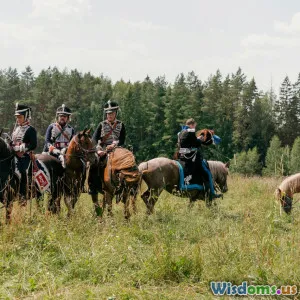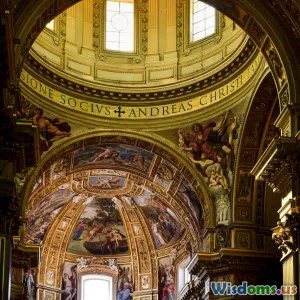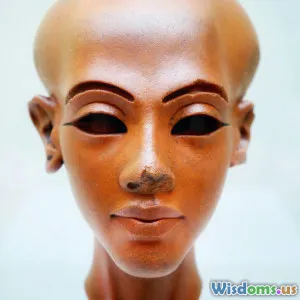Cultural Icons Who Shaped Society
8 min read Explore how cultural icons from various fields shaped society's values, beliefs, and progress over centuries. (0 Reviews)Cultural Icons Who Shaped Society
Introduction
Throughout human history, certain individuals have emerged not just as creators or leaders, but as cultural icons whose influence transcends time, borders, and disciplines. These figures—whether artists, thinkers, activists, or visionaries—have shaped society's values, challenged conventions, and inspired transformative change. Their work and personalities have forged new cultural paradigms and reflected the collective consciousness of their era, often serving as catalysts for social movements or redefining artistic and intellectual standards.
In this article, we explore remarkable cultural icons who have left an indelible mark on society. By examining their contributions and legacy, we gain insight into how culture is shaped and reshaped across generations.
The Power of Cultural Icons: A Framework
Icons are not just popular or famous figures; their significance lies in embodying ideals, struggles, and visions that resonate deeply with society. They often emerge during pivotal historical moments and their influence can be economic, social, or political.
What Defines a Cultural Icon?
- Symbolism: Icons symbolize broader societal themes or issues. For example, Nelson Mandela represented the struggle for justice and reconciliation.
- Innovation: They introduce groundbreaking ideas or methodologies.
- Endurance: Their influence persists across time, inspiring future generations.
By analyzing these traits, we observe the mechanisms through which culture adapts and thrives.
Artistic Trailblazers: Changing Perceptions Through Creativity
Art has been a powerful vehicle for cultural transformation, and several icons harnessed it to challenge societal norms.
Leonardo da Vinci: The Renaissance Polymath
Leonardo da Vinci's work epitomizes the fusion of art, science, and humanism. His masterpieces like Mona Lisa and The Last Supper revolutionized portrait painting and narrative art. Moreover, da Vinci's observations and sketches laid foundations for scientific exploration, embodying Renaissance curiosity.
Frida Kahlo: Personal Pain as Cultural Expression
Frida Kahlo's vivid self-portraits articulated themes of identity, gender, and post-colonialism. In a male-dominated art world of early 20th-century Mexico, she transformed personal suffering into universal symbols of resilience. Kahlo’s influence is especially profound in contemporary feminist art and popular culture.
The Beatles: Globalizing Popular Music
The Beatles, comprising John Lennon, Paul McCartney, George Harrison, and Ringo Starr, transformed music's cultural role during the 1960s. Their innovative compositions and experimentation with diverse genres propelled rock music into a global language, reshaping youth culture and social attitudes toward peace and rebellion.
Visionaries and Leaders: Shaping Society’s Morality and Direction
Icons in leadership often serve as ethical and social beacons, guiding societies through transformation.
Nelson Mandela: A Legacy of Reconciliation and Equality
Mandela’s fight against apartheid and eventual presidency in South Africa symbolize hope and resilience. His philosophy of forgiveness over vengeance reshaped a racially divided nation and set a precedent for peaceful conflict resolution worldwide. Mandela’s 27 years of imprisonment underscore his steadfast commitment to justice.
Mahatma Gandhi: The Father of Nonviolent Resistance
Gandhi’s concept of Satyagraha (truth-force) influenced global civil rights movements. His leadership was instrumental in India’s independence, emphasizing nonviolent protest. Figures like Martin Luther King Jr. cited Gandhi’s strategies as inspiration, demonstrating his broad impact on 20th-century activism.
Malala Yousafzai: Voice for Girls’ Education
As a young Pakistani activist shot by the Taliban for advocating education, Malala symbolizes courage and hope for millions. Her fight challenges oppressive norms and promotes universal access to education. Awarded the Nobel Peace Prize in 2014, she continues to galvanize global attention on women’s rights and educational equity.
Literary Icons: Reshaping Thought Through Words
Writers and philosophers elucidate and critique societal values, sparking intellectual movements.
William Shakespeare: The Bard Who Captured the Human Condition
Shakespeare’s plays and poetry reflect timeless insights into politics, love, ambition, and morality. His works—Hamlet, Othello, Macbeth—have shaped English literature and discourse, influencing countless artists and thinkers.
Simone de Beauvoir: Pioneer of Feminist Philosophy
Her seminal work The Second Sex challenged patriarchal structures and invigorated feminist theory. De Beauvoir’s existentialist background provided profound critique on gender roles, affecting social attitudes towards women's autonomy.
James Baldwin: Voice of Civil Rights and Identity
An eloquent chronicler of racial and sexual identity in America, Baldwin’s essays and novels remain vital to understanding systemic injustice. His courage in confronting uncomfortable truths of race relations continues to inspire activists and writers worldwide.
Impact Beyond Borders: Cultural Icons as Global Influencers
While some icons emerge from specific cultures, their messages often transcend national boundaries.
Pablo Picasso: Cubism and Political Activism
Picasso revolutionized modern art with Cubism, deconstructing perspectives and form. Beyond art, his painting Guernica became a potent anti-war symbol during the Spanish Civil War, underscoring art's role in political commentary.
Bob Marley: Ambassador of Rastafarianism and Resistance
Marley’s music popularized reggae internationally, advocating peace, resistance against oppression, and Afrocentric pride. His legacy promotes cultural identity, spiritual resilience, and social justice.
Marie Curie: Trailblazer in Science and Gender Barriers
Though primarily a scientist, Curie's breakthroughs in radioactivity challenged societal expectations about women's roles in academia and research. Her Nobel Prizes highlight the blend of intellectual achievement and cultural influence.
Conclusion: The Enduring Power of Cultural Icons
Cultural icons serve as mirrors and architects of society. Their lives and works illuminate societal challenges, progress, and dreams. In an ever-changing world, these figures remind us that culture is a living dialogue—an ongoing process shaped by conscience, creativity, and courage.
Understanding their contributions fosters appreciation for diversity and inspires active engagement with the cultural forces that shape our present and future. As consumers and creators, we participate in this legacy, empowered by the examples of those who dared to transform the world.
References & Further Reading:
- Nelson Mandela Foundation, nelsonmandela.org
- The Frida Kahlo Museum Official Site, museofridakahlo.org.mx
- BBC History on Mahatma Gandhi, bbc.co.uk/history
- Biography of William Shakespeare, shakespeare.org.uk
This article was crafted to inspire readers to appreciate the power of cultural icons and their ability to shape our society across different domains.
Rate the Post
User Reviews
Popular Posts





















